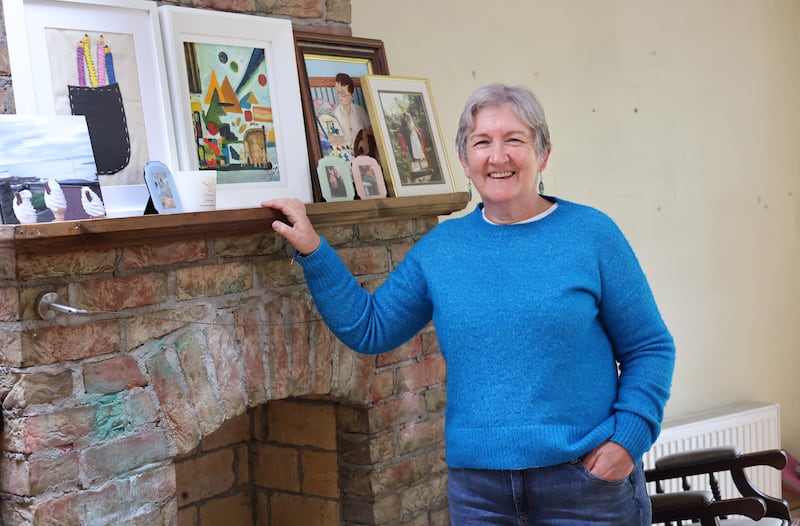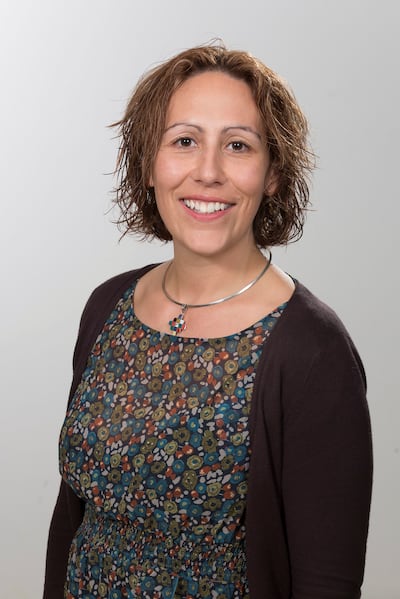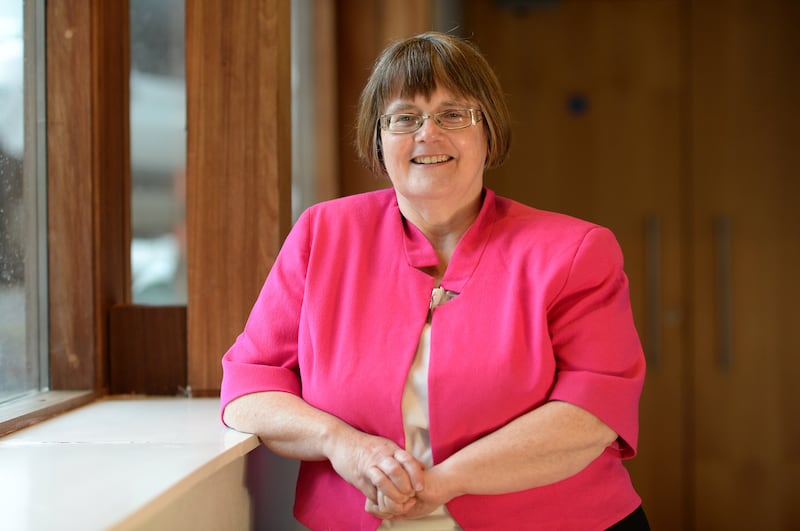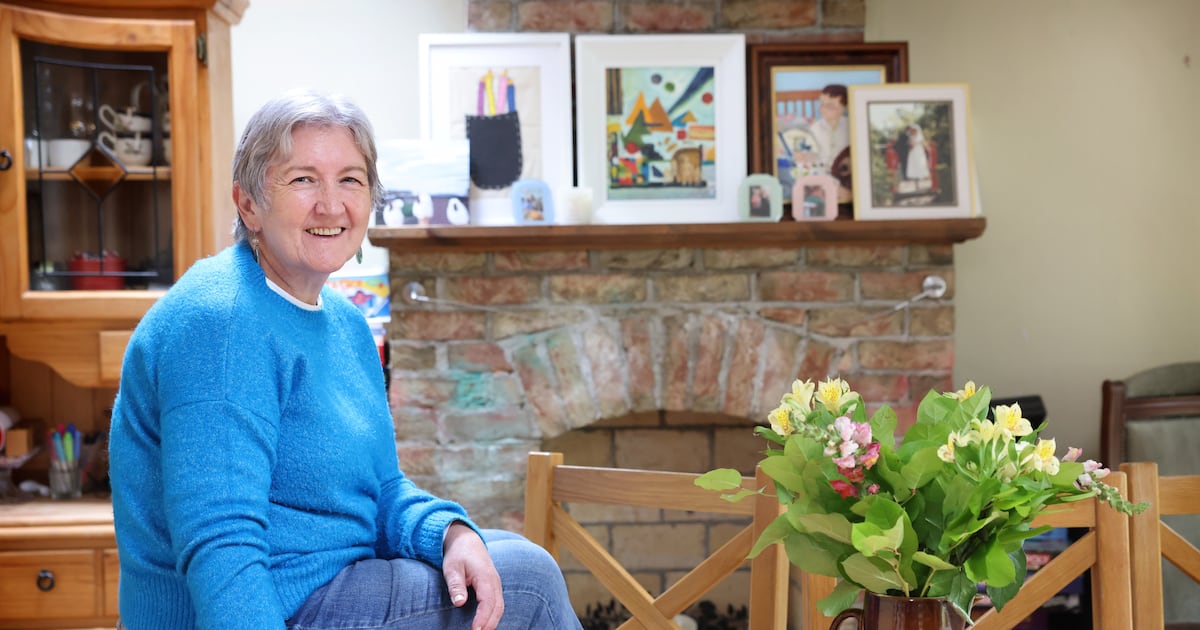We pride ourselves in Ireland on doing death well. At least that is, after the event, when bereaved families are typically embraced in a communal, warm acknowledgment of their loss.
But what about the lead-up to death? Does a lingering taboo around not talking about death until it actually happens mean we’re not so good at that?
The palliative care community certainly wants to encourage conversations earlier in life, to help make the most of time left and as better preparation for the inevitable. “Living for today, planning for tomorrow” is the theme of Palliative Care Week (thepalliativehub.com), running until September 13th and led by the All Ireland Institute of Hospice and Palliative Care (AIIHPC).
“Many are reluctant to discuss palliative care due to fear of upsetting others or because death is culturally seen as a failure,” according to an AIIHPC research document. “These taboos are a major barrier to engagement with both palliative care and advance care planning.”
Common misunderstandings about palliative care do not help, either. It tends to be seen as something that happens in a hospice, during the final days of a person dying from cancer. In fact, specialist palliative care teams work with anybody who has been diagnosed with a life-limiting condition, and not just in hospices, but also in acute hospitals, private houses and nursing homes. They look after not only the patient concerned, but their families, too.
“We don’t go away,” was the assurance given to Aedín Gillespie when she was leaving St Francis Hospice in Raheny, Dublin, the day her husband Frank died there at age 51. Her voice cracks with emotion 11 years later, as she recalls those words and how staff supported her and their two children, Billy and Frankie, aged just nine and eight respectively, through that very difficult time.
“People would ask me about the hospice, and I’d say, ‘they saved my family, which is an odd thing to say because, obviously, Frank died. But they saved the rest of my family,” explains Gillespie. Before her husband was diagnosed with metastatic cancer at the age of 50, her understanding of palliative care was as symptom control and giving people dignity in death.
“I knew I would get help with the children,” she says. “But I didn’t realise how much work they [palliative care staff] actually do for the family afterwards.”
 Aedín Gillespie, a bereavement volunteer at St Francis Hospice whose husband died in the hospice. Photograph: Dara Mac Dónaill
Aedín Gillespie, a bereavement volunteer at St Francis Hospice whose husband died in the hospice. Photograph: Dara Mac Dónaill
She believes the fact her children say they don’t remember their father’s unusually long, six-month stay in the hospice as a difficult time is testament to the care they all received there. Frank’s room was their private domain; on arrival he hadn’t liked the layout, and the staff unquestioningly reorganised it immediately to his preference.
“With the kids being that young, we were able to have movie nights and pizza nights. We’d go after school and they’d do their homework.”
It’s the little things that Billy and Frankie recall, such as nurses sneaking them ice-creams and turning a blind eye when they clambered aboard their father’s wheelchair for a spin down the corridor.
The more prepared people are for the death of a loved one, the better their outcomes in bereavement, says Niamh Finucane, co-ordinator of social work and bereavement services at the hospice. With young families, the main aim of social workers is to enable adults around the children to support them as much as possible.
“They’re the ones who are there at bedtime or over a weekend – the tough questions come when they’re in the middle of cooking dinner. To tell them how children might be thinking or feeling, or things to look out for, and to upskill them, is going to be the best in the long run for all of them.”
St Francis Hospice provides palliative care to 2,300 patients and families every year. Some 63 per cent have a cancer diagnosis; 37 per cent have other life-limiting conditions. While the hospice has 43 in-patient beds between centres in Raheny and Blanchardstown, 70 per cent of its service is delivered in the community, either in people’s homes (including residential centres) or through its outpatient service.
 Niamh Finucane, co-ordinator of social work and bereavement services
Niamh Finucane, co-ordinator of social work and bereavement services
“What we’re always aiming to do is to try and prevent future difficulties,” says Finucane. Families may think they are protecting children by not telling them about a family member’s life-limiting diagnosis, but research shows that children generally want to know what’s going on and to have a chance to be involved in care. For younger ones, that might be simple things such as bringing a drink of water to the person, or perhaps drawing a picture to try to make them happy, she suggests, while older children could contribute to hands-on care. The trajectory of an illness, or how a family is coping, may determine how long the hospice social care team has to work with children in the lead-up to bereavement.
“Sometimes we’re involved in conversations months out from the death, where we can help parents plan the memory work that they do, as well as the communication with their children around changes and what’s happening. Other times, we’re trying to do that in a much shorter period of time because nobody could really face it, until it got to that very end stage.”
It’s normal for people to have a tough time after someone dies, in the sense that grief is a normal response, she says. “But it’s trying to not compound that with people not being prepared or not knowing what was going to happen.”
Palliative care consultant Dr Regina McQuillan agrees that we definitely handle death and its aftermath very well in this country. She also believes there is “fairly good support” within the health service when it is recognised that people are dying, although “there’s lots of room for improvement”.
“One thing I think that probably we’re not as good about is maybe that idea of thinking ahead about, if you have a serious illness and you’re likely to die, what’s likely to happen or what might be important to you.” The Irish Hospice Foundation (hospicefoundation.ie) offers a very helpful Think Ahead planning pack for this.
[ Palliative care is about so much more than end of lifeOpens in new window ]
While palliative care recognises that an underlying illness cannot be cured, “it’s not about doing nothing either”, she stresses. “It’s about trying to manage the other problems that people might have. That’s why somebody might be simultaneously receiving palliative care, but also needing to go to hospital for antibiotics by drip.”
For some people who’ve cared for people a long time, there can be a certain amount of relief [after death], and that’s a very difficult one
— Aedín Gillespie
It’s important to get the right balance and not under-treat a patient’s problems because they have an incurable illness. The judgment call can be difficult, she says, on whether or not medically treating an issue will help.
Sometimes patients are very clear themselves, she says. They may have been in and out of hospital for successful treatment of infections but feel that, as their overall quality of life is not improving, they would prefer not to go back to hospital.
There are insufficient specialist palliative care beds in the country, and there are challenges in providing outpatient specialist palliative care too, she says. However, “not everybody with a life-limiting illness needs to see specialist palliative care or needs to be in an in-patient hospice unit”. In addition to specialist teams, other nurses and doctors, such as GPs, oncologists and geriatricians, have palliative-care skills.
“In Ireland, we are lucky enough that the Government is committed to funding and developing specialist palliative care services,” she says. But there are “very clear” deficits in staffing and services around the country that need to be addressed. State spending on palliative care is projected to reach €179 million this year, an increase of 13 per cent from €155 million in 2024.
On the idea that death of a patient can be seen as a failure, McQuillan is concerned that sometimes people feel if “somebody”, be that a doctor, family member or the patient themselves “had tried harder or fought more, they might have been able to beat it”. Unfortunately, she says, such a scenario is not possible with life-limiting diseases.
McQuillan has, on behalf of the Irish Palliative Medicines Consultants Association, opposed moves to decriminalise assisted death for terminally ill people in certain circumstances. The Voluntary Assisted Dying Bill 2024 has been stalled since the change of government.
Working in this field, she says, “we are dealing with people who have illnesses that in some countries would make them eligible for assisted suicide or euthanasia”. She sees a danger here not just for individuals, but also for wider society. “It creates the idea that for some situations, death is a solution to some problems. There is an argument to say that maybe assisted suicide and euthanasia is not a healthcare issue. It’s a societal response to distress, and maybe this needs to be outside of healthcare entirely.”
 Palliative care consultant Dr Regina McQuillan. Photograph: Dara Mac Donaill
Palliative care consultant Dr Regina McQuillan. Photograph: Dara Mac Donaill
Public support for permitting assisted dying, as indicated in successive opinion polls, is, she believes, partly motivated by those who may have had very negative experiences of people managing death and dying. However, “research shows that most people look for assisted suicide or euthanasia when they lose independence”. In a “fundamentally ableist” society, people need help to live well with disability, she argues, rather than believing that depending on others for care means having a life that would not be worth living.
McQuillan is one of nine palliative care consultants working with St Francis Hospice, says its chief executive, Fintan Fagan. They divide their time between the hospice’s services and acute hospitals, such as Beaumont and the Mater.
“We look after one in three patients who die in our catchment area in a year, but we know we should be really looking after two in three. We know there are people with other palliative care needs who don’t get to us, and they don’t get to us because they’re caught in the general hospital or they haven’t got the information, or whatever.”
Fagan is also chair of the AIIHPA (aiihpc.org), which is an alliance of 26 organisations set up in 2011 to promote universal palliative care across the island and to encourage collaboration in research and education. There is a great momentum to palliative care now, due to the recognition of how well the State can work in partnership with the voluntary community sector, he says. But this week’s campaign is an important contribution to awareness-raising.
“All the hospices would say that, once a patient and family comes to the hospice service, they say, ‘Oh, God, I should have come earlier’.”
Aedín Gillespie has seen how in-patient hospice care can be regarded as a failure, in that the person cannot be looked after at home – which is perhaps why some families put off taking up such care. She felt judged by some people, unaware of her husband Frank’s complex needs because he was not at home.
Billy and Frankie Gillespie with their mother Aedín. They are holding paintings of themselves painted by their late father Frank while he was in the hospice
For the past 18 months, she has worked as a bereavement volunteer with adults at St Francis Hospice, having done a year’s training for the role. Social workers step in for people who might need more support, and a very small minority may be referred to mental health professionals.
“A huge amount of healing comes with being heard,” says Gillespie. “The most important thing I want everyone to realise is that they’re not losing their mind.”
Many different emotions come with grief, including anger, anxiety and blame.
“For some people who’ve cared for people a long time, there can be a certain amount of relief, and that’s a very difficult one. They have a lot of shame around that.” Forgetfulness and being distracted are also common responses that people don’t think of. It is important to attend to grief, but families and friends may not understand how exhausting it is.
“Mourning is a bit of a job,” she says. The “tasks” include accepting the reality of the loss, working through grief, and adjusting to life without that person. But there is no “fix”.
Gillespie identifies with US writer Anne Lamott’s description of grief as “like having a broken leg that never heals perfectly – that still hurts when the weather gets cold, but you learn to dance with the limp”.

